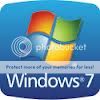Ok so i bought a new computer which i have yet to build, i am just preparing. If i take my current main SSD which has windows 7 64 bit OEM on in and put in into my new computer can i just boot from drive with my new windows 8 retail version and format my old drive in new computer and write over it? Or will my old SSD be somehow linked to my old computer and will it not let me format it unless i do it while connected to all my old parts?
Im sorry if this was confusing i found it really hard to word correctly.
In short my question is, can i put a SDD which was the O/S from another computer into my new computer taking note i will be formatting it and installing a new version of windows?
Thanks
Im sorry if this was confusing i found it really hard to word correctly.
In short my question is, can i put a SDD which was the O/S from another computer into my new computer taking note i will be formatting it and installing a new version of windows?
Thanks



